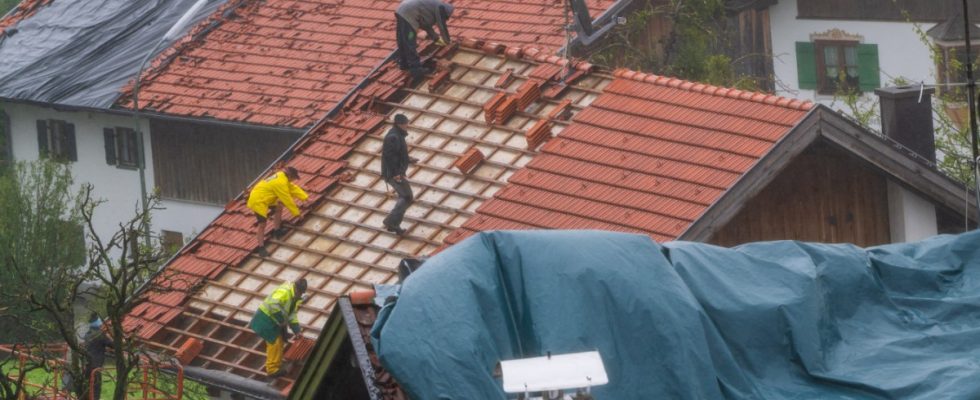Weather extremes such as storms, hail and heavy rain have cost German insurers almost five billion euros this year. The insured damage to houses, household goods, businesses and motor vehicles is expected to have increased by 900 million euros to 4.9 billion euros in 2023 compared to the previous year, according to Jörg Asmussen, general manager of the insurer association GDV. “Unfortunately, they are pretty stable at the high level of the long-term average.”
Property insurance, i.e. residential building and contents policies, accounted for the largest share of damage at 3.6 billion euros. Of this, 2.7 billion euros were caused by storms and hail, and 900 million euros by other natural disasters such as floods caused by heavy rain. While the claims balance in property insurance is slightly below average, motor vehicle insurers had to pay more than usual. Around 465,000 claims cost them around 1.3 billion euros in 2023. The long-term average here is 1.1 billion euros.
The summer months were particularly damaging; there was largely no major devastation from autumn and winter storms in 2023. According to GDV, severe storms caused damage amounting to 1.5 billion euros in August alone, almost a third of the total damage. The property insurers had to pay 950 million euros and the motor vehicle insurers around 550 million euros.
Especially deep Denis had caused severe devastation in southern Bavaria on the last weekend in August. The storm brought ten centimeter hailstones that severely damaged buildings and cars. The 20,000 square meter roof of the Benediktbeuern monastery was almost completely destroyed.
Many homeowners are not insured in the event of flooding
The storms had already occurred in June Kay and Lambert Damage amounting to 740 million euros was caused. Of this, around 390 million euros went to property insurance and the remaining 350 million euros to motor vehicle insurance.
While most properties in Germany are insured against damage from storms and hail, many homeowners have not taken out additional cover against natural damage such as flooding. According to GDV, only 54 percent of residential buildings have appropriate protection. Experts and sections of politics are therefore pushing for compulsory insurance against these risks. The GDV is against it. He advocates a so-called opt-out solution in which customers are automatically insured against natural hazards but can opt out of the protection.
In addition, government provision for major damage and binding steps to adapt to climate impacts are necessary. “In many places, things are being planned and built as if climate change and its consequences didn’t exist,” said Asmussen. Adaptation to climate change should therefore be anchored in building regulations. There should also be less sealing of areas and more building bans in flood areas, said Asmussen. If that doesn’t happen, insurance coverage could become more expensive in the future as a result of climate change.

